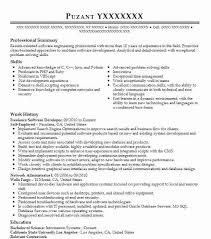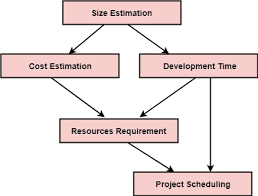Freelance software development has become increasingly popular in recent years, as more and more businesses turn to independent contractors to build custom software and applications. Freelance software developers offer a number of benefits over traditional software development firms, including lower costs, greater flexibility, and faster turnaround times.
One of the biggest advantages of freelance software development is cost savings. Freelancers typically have lower overhead costs than traditional software development firms, which means they can offer their services at a lower rate. This can be especially beneficial for small businesses or startups that are working with limited budgets.
Another advantage of freelance software development is flexibility. Freelancers are often able to work on short-term projects or on a part-time basis, which can be ideal for businesses that need help with specific tasks or projects but don’t require a full-time developer. Additionally, freelance developers are often able to work remotely, which means businesses can hire talent from anywhere in the world.
Speed is also a major advantage of freelance software development. Because freelancers are typically working on their own, they can often complete projects faster than traditional development firms that may have multiple teams working on different aspects of a project. This can be especially important for businesses that need to get their applications or software up and running quickly in order to stay competitive.
Of course, there are also some potential drawbacks to working with freelance developers. One potential issue is quality control – because freelancers are working independently, it can be more difficult to ensure that they are producing high-quality work. Additionally, communication can sometimes be a challenge when working with remote freelancers.
Despite these potential challenges, however, freelance software development remains an attractive option for many businesses looking for cost-effective and flexible solutions to their programming needs. With the right approach and careful vetting of potential candidates, businesses can find highly skilled developers who can help them build the custom applications they need to succeed in today’s fast-paced digital marketplace.
7 Essential Tips for Successful Freelance Software Development
- Have a clear plan
- Set realistic deadlines
- Stay organized
- Don’t be afraid to ask questions
- Research thoroughly
- Invest in yourself
- Networking is key
Have a clear plan
When it comes to freelance software development, having a clear plan is absolutely essential. Without a well-defined plan, it can be difficult to communicate your needs and expectations to your developer, which can lead to delays, confusion, and frustration.
Before you begin working with a freelance software developer, take the time to outline your project goals and requirements in detail. This should include a clear description of what you want the software or application to do, as well as any specific features or functionality that you require.
In addition to outlining your project goals and requirements, it’s also important to establish clear timelines for each phase of the development process. This will help ensure that everyone is on the same page and that there are no surprises along the way.
Finally, be sure to communicate regularly with your developer throughout the project. This can include regular check-ins via email or phone calls, as well as periodic reviews of the work in progress. By staying in close contact with your developer and providing feedback along the way, you can help ensure that the final product meets your needs and exceeds your expectations.
In short, having a clear plan is essential for success when working with freelance software developers. By taking the time to outline your project goals and requirements in detail, establishing clear timelines for each phase of development, and communicating regularly with your developer throughout the process, you can help ensure that your project is completed on time and on budget – while also ensuring that you get exactly what you need from your developer.
Set realistic deadlines
One of the most important tips for successful freelance software development is to set realistic deadlines. While it can be tempting to promise fast turnaround times in order to win business, unrealistic deadlines can lead to a host of problems down the line.
Setting realistic deadlines requires careful planning and communication. Freelancers should work closely with their clients to understand their needs and goals, as well as any constraints or limitations that may impact the project timeline. They should also take into account their own workload and availability, and be honest with clients about what they can realistically deliver.
By setting realistic deadlines, freelancers can avoid the stress and burnout that can come with overcommitting themselves. They can also ensure that they have enough time to thoroughly test and debug their code, which is critical for producing high-quality software that meets client needs.
Clients will appreciate freelancers who set realistic deadlines and deliver on their promises. This builds trust and credibility, which can lead to repeat business and positive referrals. On the other hand, failing to meet unrealistic deadlines can damage a freelancer’s reputation and harm their chances of securing future work.
In short, setting realistic deadlines is essential for successful freelance software development. It requires careful planning, communication, and honesty – but it pays off in the form of high-quality work, happy clients, and a strong reputation in the industry.
Stay organized
When it comes to freelance software development, staying organized is key to success. With multiple projects and clients to manage, it’s important to have a system in place that allows you to keep track of deadlines, deliverables, and client communication.
One effective way to stay organized as a freelance software developer is to use project management tools like Trello or Asana. These tools allow you to create boards or tasks for each project, set deadlines and reminders, and collaborate with clients or team members in real-time.
Another important aspect of staying organized is keeping track of your time. Using a time tracking tool like Toggl can help you stay on top of how much time you’re spending on each project and ensure that you’re billing clients accurately.
In addition to using digital tools, it’s also important to establish clear communication channels with your clients. Whether it’s through email, chat apps like Slack, or video conferencing tools like Zoom, make sure that you have a consistent way of communicating with your clients so that everyone is on the same page.
Finally, don’t forget about the importance of keeping your files and documents organized. Use cloud storage services like Google Drive or Dropbox to keep all of your project files in one place and easily accessible from anywhere.
By staying organized as a freelance software developer, you’ll be able to work more efficiently and effectively manage multiple projects at once. This will not only lead to happier clients but also help you build a reputation as a reliable and professional freelancer in the industry.
Don’t be afraid to ask questions
When it comes to freelance software development, one of the most important tips for success is to never be afraid to ask questions. Whether you’re working with a new client or collaborating with other developers on a project, asking questions is essential to ensure that everyone is on the same page and that the project is completed successfully.
Asking questions can help you clarify expectations, identify potential roadblocks, and ensure that you have all the information you need to complete your work effectively. It can also help you avoid misunderstandings and prevent mistakes that could derail the project.
When asking questions, it’s important to be clear and specific about what you need to know. Don’t be afraid to ask for more details or clarification if something isn’t clear. It’s better to ask too many questions than not enough – after all, it’s much easier to address issues early in the process than it is to try and fix them later.
It’s also important to approach questioning with a positive attitude. Don’t be confrontational or accusatory – instead, frame your questions in a way that shows your desire to understand and contribute positively to the project.
In addition to asking questions, it’s also important to actively listen to the answers you receive. Take notes if necessary, and make sure that you fully understand what is being communicated before moving forward.
Overall, don’t let fear or hesitation prevent you from asking questions when working as a freelance software developer. By being proactive in seeking information and clarifying expectations, you can help ensure that your work meets or exceeds client expectations – which can lead not only to repeat business but also positive word-of-mouth referrals from satisfied clients.
Research thoroughly
When it comes to freelance software development, one of the most important tips for businesses to keep in mind is to research thoroughly before hiring a freelancer. With so many options available online, it can be tempting to simply choose the first freelancer who seems like a good fit. However, this can be a recipe for disaster.
Thoroughly researching potential freelancers is crucial for several reasons. First and foremost, it allows businesses to ensure that they are hiring someone with the necessary skills and experience to complete the project successfully. This means looking at portfolios, reading reviews and testimonials from previous clients, and asking potential freelancers about their specific experience with similar projects.
In addition, researching potential freelancers can also help businesses avoid scams or low-quality work. Unfortunately, there are many freelancers out there who are not qualified or who may attempt to take advantage of unsuspecting clients. By doing their due diligence and thoroughly researching potential candidates, businesses can protect themselves from these types of situations.
Finally, thorough research can also help businesses find the best possible value for their money. By comparing rates and services offered by multiple freelancers, businesses can make an informed decision about which candidate is the best fit for their needs and budget.
In short, when it comes to freelance software development, taking the time to research thoroughly is absolutely essential. By doing so, businesses can find highly skilled developers who can help them achieve their goals – without having to worry about scams or low-quality work.
Invest in yourself
As a freelance software developer, it’s important to remember that you are your own business. And just like any business, investing in yourself is key to success. This means taking the time and effort to continuously improve your skills and knowledge.
Investing in yourself can take many forms, such as attending conferences or workshops, taking online courses, or even just reading books and articles on the latest programming trends and technologies. By staying up-to-date with the latest developments in your field, you can stay ahead of the competition and offer your clients the most cutting-edge solutions.
Another way to invest in yourself as a freelance software developer is to develop a strong personal brand. This means creating a professional website or portfolio that showcases your skills and experience, as well as actively engaging with others in your industry through social media or other online forums.
Finally, it’s important to remember that investing in yourself also means taking care of yourself. As a freelancer, it can be easy to get caught up in work and neglect your physical and mental health. Make sure to take breaks throughout the day, exercise regularly, and prioritize self-care activities like meditation or hobbies that help you recharge.
In conclusion, investing in yourself is crucial for success as a freelance software developer. By continuously improving your skills and knowledge, developing a strong personal brand, and prioritizing self-care, you can build a successful career that allows you to thrive both professionally and personally.
Networking is key
When it comes to freelance software development, networking is key. Building relationships with other developers, industry professionals, and potential clients can help you find new opportunities and grow your business.
One of the best ways to network as a freelance developer is to attend industry events and conferences. These events provide a great opportunity to meet other developers, learn about new technologies and trends, and make connections with potential clients.
Another effective way to network is through online communities and forums. Participating in online discussions related to your area of expertise can help you build your reputation as an expert in your field and connect with others who share your interests.
Social media can also be a powerful tool for networking. By sharing content related to your work or engaging in conversations with other professionals in your industry, you can build a following and attract new clients.
Ultimately, the key to successful networking as a freelance developer is to be proactive. Don’t wait for opportunities to come to you – actively seek out ways to connect with others in your field and build relationships that can help you grow your business over time. With patience, persistence, and a willingness to put yourself out there, you can create a strong network of contacts that will serve you well throughout your freelance career.




